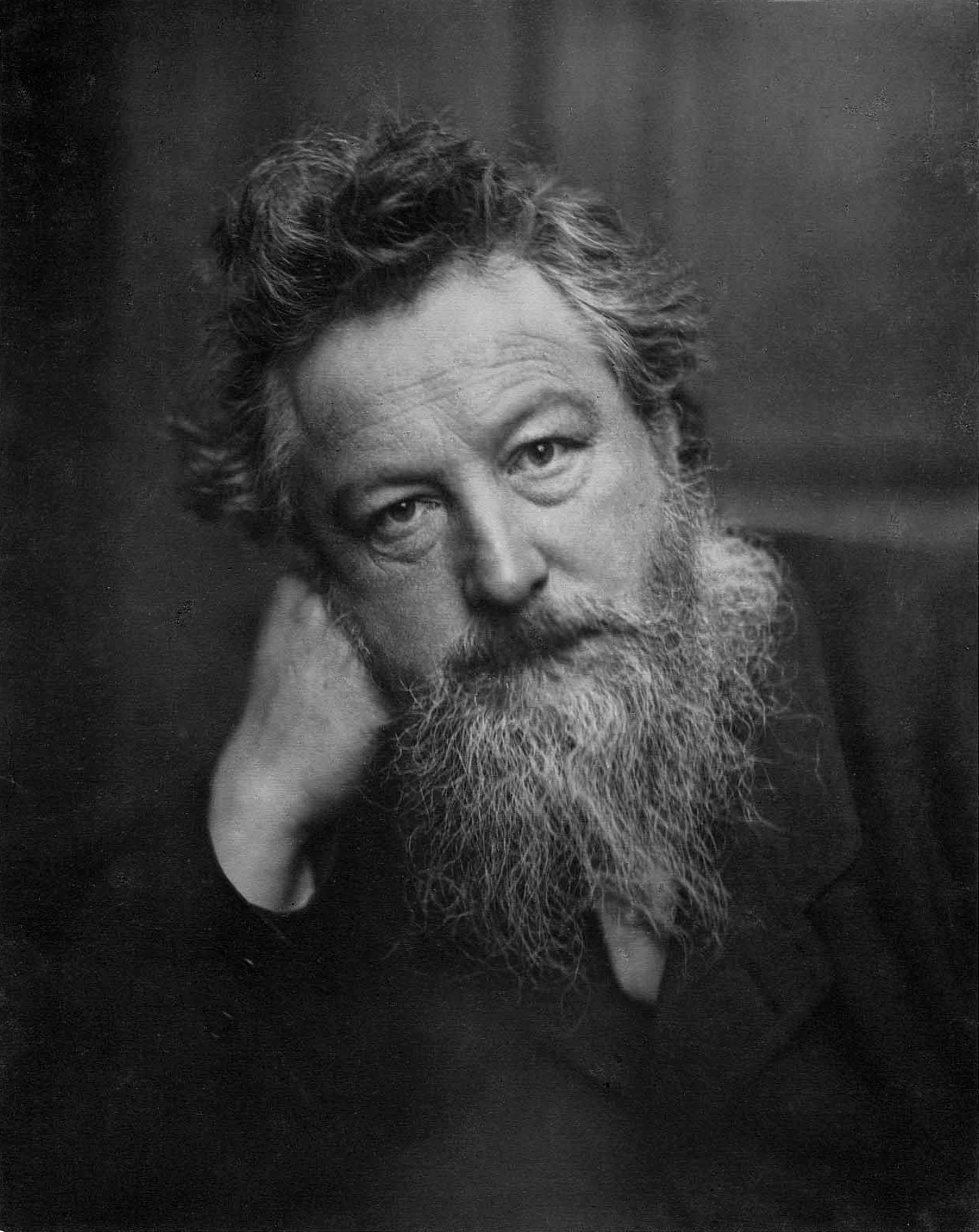Love is Enough (1872), Song VI: Cherish Life that Abideth
Contexto: Live on, for Love liveth, and earth shall be shaken
By the wind of his wings on the triumphing morning,
When the dead, and their deeds that die not shall awaken,
And the world's tale shall sound in your trumpet of warning,
And the sun smite the banner called Scorn of the Scorning,
And dead pain ye shall trample, dead fruitless desire,
As ye wend to pluck out the new world from the fire.
William Morris: Frases em inglês
“Wait, wait, till thou hast heard this tale of mine,
Then shalt thou think them devilish or divine.”
The Earthly Paradise (1868-70), The Lady of the Land
Contexto: A queen I was, what Gods I knew I loved,
And nothing evil was there in my thought,
And yet by love my wretched heart was moved
Until to utter ruin I was brought!
Alas! thou sayest our gods were vain and nought,
Wait, wait, till thou hast heard this tale of mine,
Then shalt thou think them devilish or divine.
“Unheard-of wealth, unheard-of love is near,
If thou hast heart a little dread to bear.”
The Earthly Paradise (1868-70), The Lady of the Land
Contexto: Then listen! when this day is overpast,
A fearful monster shall I be again,
And thou mayst be my saviour at the last,
Unless, once more, thy words are nought and vain.
If thou of love and sovereignty art fain,
Come thou next morn, and when thou seest here
A hideous dragon, have thereof no fear,
But take the loathsome head up in thine hands
And kiss it, and be master presently
Of twice the wealth that is in all the lands
From Cathay to the head of Italy;
And master also, if it pleaseth thee,
Of all thou praisest as so fresh and bright,
Of what thou callest crown of all delight.
Ah! with what joy then shall I see again
The sunlight on the green grass and the trees,
And hear the clatter of the summer rain,
And see the joyous folk beyond the seas.
Ah, me! to hold my child upon my knees
After the weeping of unkindly tears
And all the wrongs of these four hundred years.
Go now, go quick! leave this grey heap of stone;
And from thy glad heart think upon thy way,
How I shall love thee — yea, love thee alone,
That bringest me from dark death unto day;
For this shall be thy wages and thy pay;
Unheard-of wealth, unheard-of love is near,
If thou hast heart a little dread to bear.
News from Nowhere (1890)
Contexto: Go back again, now you have seen us, and your outward eyes have learned that in spite of all the infallible maxims of your day there is yet a time of rest in store for the world, when mastery has changed into fellowship — but not before. Go back again, then, and while you live you will see all round you people engaged in making others live lives which are not their own, while they themselves care nothing for their own real lives — men who hate life though they fear death. Go back and be the happier for having seen us, for having added a little hope to your struggle. Go on living while you may, striving, with whatsoever pain and labour needs must be, to build up little by little the new day of fellowship, and rest, and happiness.
"The Beauty of Life," a lecture before the Birmingham Society of Arts and School of Design (19 February 1880), later published in Hopes and Fears for Art: Five Lectures Delivered in Birmingham, London, and Nottingham, 1878 - 1881 (1882).
“Earth, left silent by the wind of night,
Seems shrunken 'neath the gray unmeasured height.”
"December".
The Earthly Paradise (1868-70)
Love is Enough (1872), Song III: It Grew Up Without Heeding
"February".
The Earthly Paradise (1868-70)
The Earthly Paradise (1868-70), The Lady of the Land
Signs of Change (1888), The Aims of Art
“Wert thou more fickle than the restless sea,
Still should I love thee, knowing thee for such.”
Life and Death of Jason, Book ix, reported in Bartlett's Familiar Quotations, 10th ed. (1919).
As quoted in William Morris & Red House (2005) by Jan Marsh, p. 65.
The Earthly Paradise (1868-70), The Lady of the Land
The Earthly Paradise (1868-70), The Lady of the Land
The Earthly Paradise (1868-70), The Lady of the Land
“The wind is not helpless for any man's need,
Nor falleth the rain but for thistle and weed.”
Love is Enough (1872), Song II: Have No Thought for Tomorrow
“The majesty
That from man's soul looks through his eager eyes.”
Life and Death of Jason, Book xiii, reported in Bartlett's Familiar Quotations, 10th ed. (1919).
The Earthly Paradise (1868-70), The Lady of the Land
Love is Enough (1872), Song IX: Ho Ye Who Seek Saving
Other Days, reported in Bartlett's Familiar Quotations, 10th ed. (1919).
